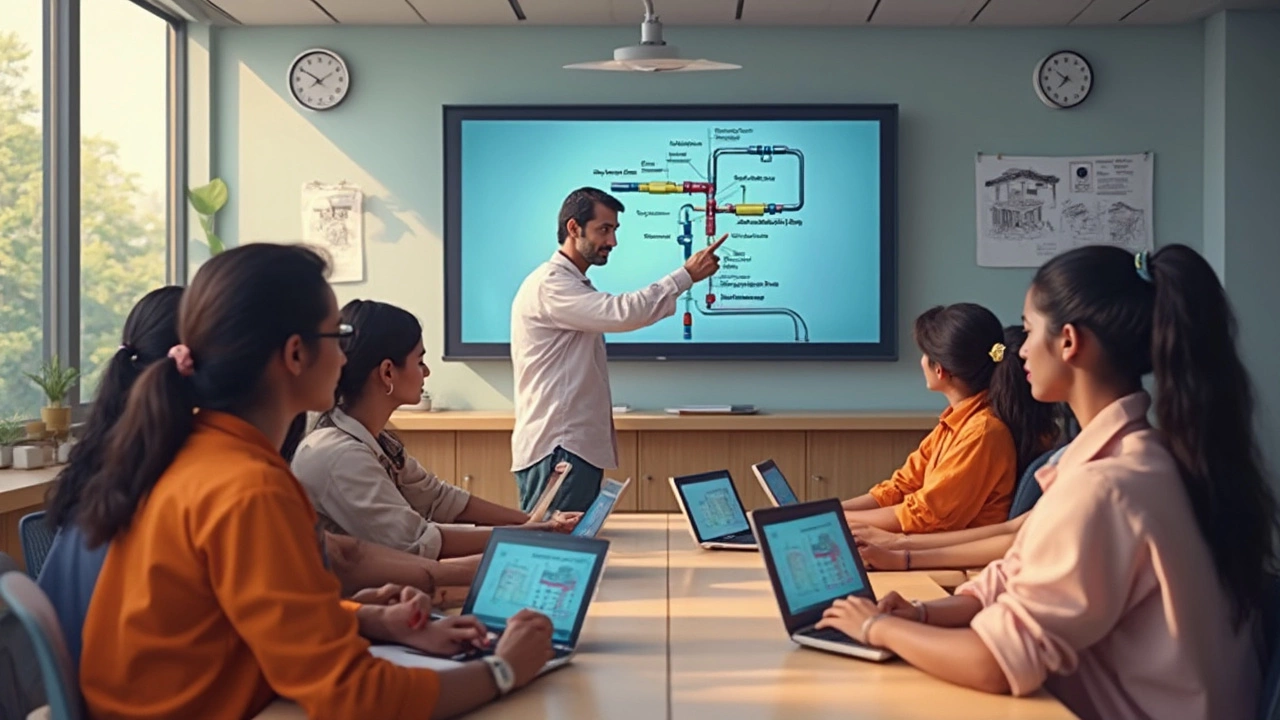Plumber Tech Course – Your Path to a Solid Career
Thinking about a plumbing career? It’s a trade that pays well, stays in demand, and lets you work with your hands. The trick is picking a plumber tech course that actually teaches you what employers need. Below you’ll find the basics to help you sort the good options from the hype.
What to Look for in a Plumbing Course
First, make sure the program combines classroom lessons with real‑world practice. A course that only shows you pipe diagrams won’t prepare you for the noisy, dirty jobs you’ll face on site. Look for schools that partner with local contractors for apprenticeships or have a built‑in lab where you can practice soldering, pipe threading, and fitting fixtures.
Second, check the credentials. In India, a recognized certification like the National Skill Development Corporation (NSDC) or a state‑approved diploma adds weight to your resume. Employers often ask for a certified plaster‑fitter level or a journeyman‑ready certificate before they consider you for a full‑time role.
Third, think about the course length and cost. Short‑term crash courses (8‑12 weeks) can get you the basics fast, but a longer program (6‑12 months) usually includes deeper safety training and code compliance. If money is tight, see if the institute offers scholarships or a “pay after placement” plan.
Finally, read reviews from past students. The article “Best Plumbing Course: How to Choose the Right Path for Career Success” highlights exactly this – students love programs that give them a clear job‑placement path and hands‑on training. If a school boasts a high placement rate and lists companies they work with, that’s a good sign.
How to Get Started Today
Start by listing your goals. Do you want to become an independent contractor, or are you aiming for a salaried job with a large firm? Your answer will guide whether you need a basic plumber tech certificate or a full apprenticeship.
Next, visit a few local training centers or browse their websites. Ask for a syllabus and request a demo of their workshop. Many institutes will let you sit in on a class or watch a short video of their lab.
Once you’ve chosen a program, gather the required documents – usually an ID, education certificates, and a basic health clearance. Some courses also need a background check because you’ll be working in homes and commercial buildings.
Enroll, show up, and practice as much as you can. The more you handle real pipes, the quicker you’ll pick up tricks like preventing leaks, reading blueprints, and working safely around electricity. Don’t skip the safety modules; a single mistake can cost you a job.After you finish, use the institute’s placement service or reach out directly to local contractors. Many hiring managers expect you to bring a copy of your certification and a short list of completed projects, so keep a portfolio of photos or a simple notebook of what you’ve done.
Remember, plumbing isn’t just about fixing leaks – it’s about understanding water systems, building codes, and customer service. A solid plumber tech course gives you the technical know‑how and the confidence to start earning right away.
Ready to get your hands dirty? Pick a reputable course, commit to the hands‑on part, and you’ll be on the fast track to a stable, well‑paid career.

Looking at tech courses for plumbers but don't know what's easy to start with? This guide breaks down the simplest entry point for beginners, what to expect, and tips to help you pass. You'll learn why plumbing tech courses are less intimidating than they sound, what skills will help you, and how to choose the right program for your goals. If you want to launch a trade career with smart course choices, this is for you.
Continue Reading





